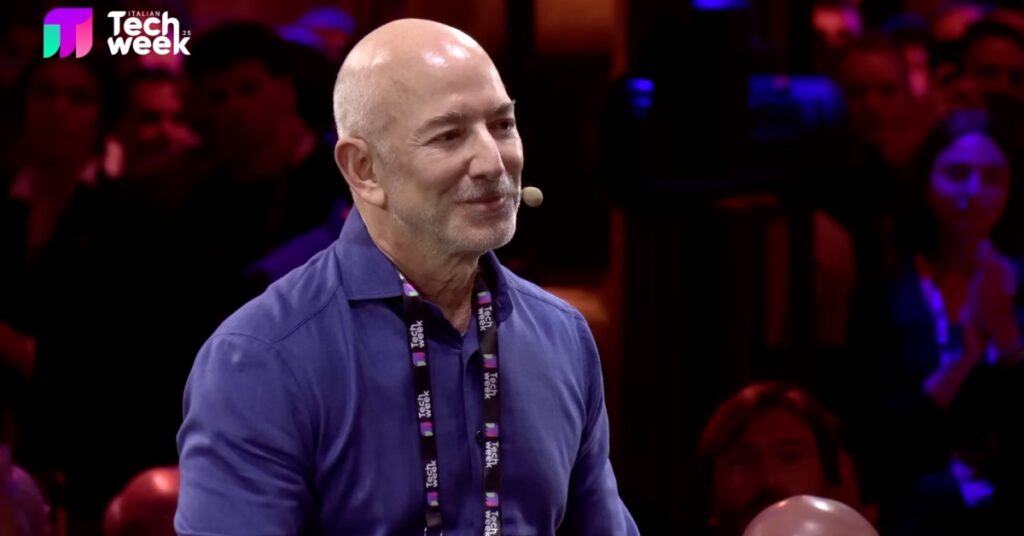
Some of the biggest names in tech dropped out and made billions, but that doesn’t mean you should
What do Mark Zuckerberg and Bill Gates have in common? Both dropped out of college, and both went on to become some of the biggest names in tech.
Zuckerberg started Meta in 2004 from his Harvard dorm room before eventually dropping out, while Gates left Harvard in 1975 to co-found Microsoft. Today, their companies are valued at US$1.8 trillion and US$3.8 trillion, respectively.
Stories like these have fueled one of the most pervasive myths in startup culture: the idea that you must drop out of college in your early twenties to become a tech billionaire.
However, Jeff Bezos warns that these cases are exceptions, not the rule. Speaking at Italian Tech Week 2025, Bezos urged aspiring founders to take a different approach: earn a college degree and gain work experience first before launching your own startup.
10 years of work experience contributed to Amazon’s success
According to Bezos, a college degree still holds value, and gaining work experience on top of that can make a major difference for aspiring entrepreneurs.
“I always advise young people: Go work at a best-practices company somewhere where you can learn a lot of basic fundamental things [like] how to hire really well, how to interview, etc,” said Bezos.
“There’s a lot of stuff you would learn in a great company that will help you, and then there’s still lots of time to start a company after you have absorbed it.”

Bezos himself started Amazon at 30, after garnering a decade worth of work experience. He graduated from Princeton University in 1986 with a degree in electrical engineering and computer science, and went on to work at companies such as the telecommunications startup Fitel, Bankers Trust (now part of Deutsche Bank), and the hedge fund D. E. Shaw & Co.
The billionaire said he “learned a tremendous amount” during his time at D. E. Shaw. That role proved pivotal in his decision to launch Amazon—Bezos had been tasked with identifying new business opportunities in the emerging internet space, where he discovered a statistic showing web usage growing by 2,300% a year. The finding sparked his idea for an online retail business.
He shared that the knowledge and experience he gained at his previous companies also proved invaluable, giving him a much better shot at success with Amazon than if he had dropped out of college to start a business a decade earlier.
“I think that extra 10 years of experience actually improved the odds that Amazon would succeed,” said Bezos, adding that he has no regrets about earning his college degree. “I enjoyed college and I think it’s been helpful to me.”
Only a handful of college dropouts achieve major entrepreneurial success
Bezos’ advice isn’t without merit.
Sure, it’s possible for a 20-year-old to drop out of college and become an entrepreneur, but the statistics show that such success is extremely rare. A Harvard Business Review article even notes that only about 4% of college dropouts go on to achieve major entrepreneurial success.
Moreover, according to a 2019 study from researchers at Massachusetts Institute of Technology, the mean age of founders of high-growth startups, defined as the top 0.1% of the fastest-growing new businesses in the United States, is far from that of those in their 20s. On average, the age of these founders is 45.
The takeaway? Not everything needs to be accomplished in your twenties—and you’ll most likely benefit from gaining experience, skills, and perspective before launching your own business.
- Watch Jeff Bezos’ full talk at Italian Tech Week 2025 here.
- Read other articles we’ve written on Singaporean businesses here.
Also Read: 90% of all startups fail—and these are the only 2 reasons why
Featured Image Credit: Italian Tech Week 2025
Last modified: October 17, 2025







